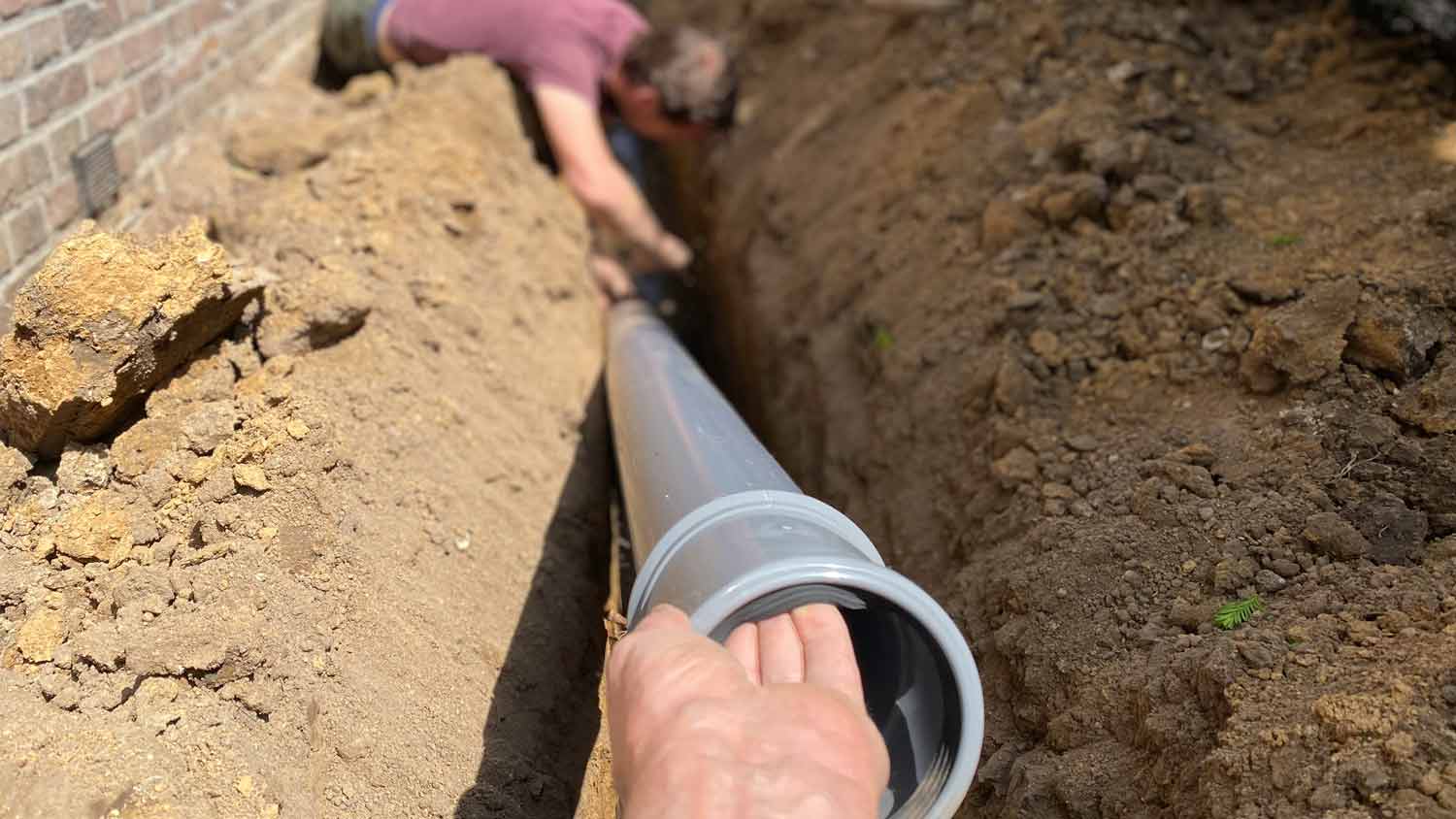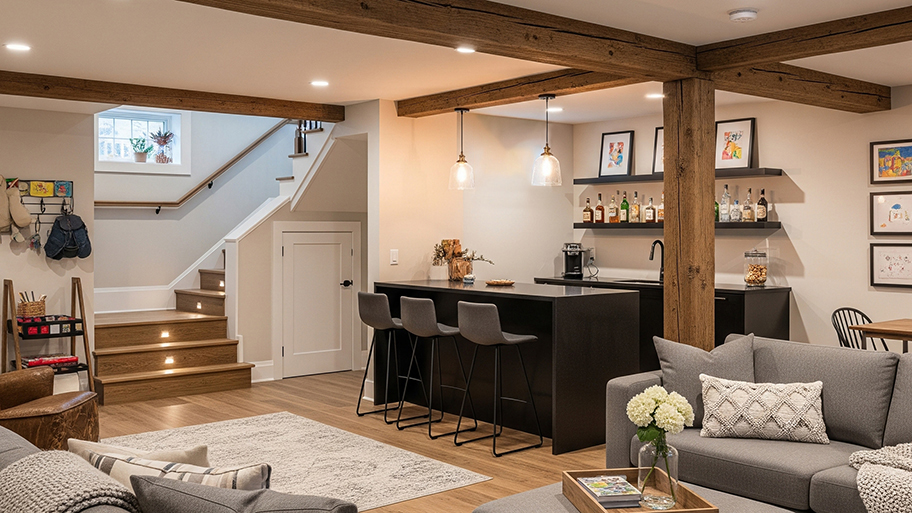
Time to get rid of that old chipped and crumbling walkway? Concrete removal costs can add up, but you have options to simplify the process. Learn more here.
An excavator can really get into the trenches of drainage


If your yard is in dire need of some water flow management, you’ve probably looked into a trench drain. But who installs trench drains? Excavation companies are the go-to for all things trench related, but you have a few viable options. We'll show you which local pros to consider if you need to install a trench drain.
Excavation companies are trenching masters, so they’re perfectly equipped to dig a trench and add a drain to your property. Here’s why you should hire these pros.
A local excavation pro specializes in digging trenches and ensures the job is done safely and according to your needs. They know how to use heavy trenching machinery needed for trenching and can get the trench to the perfect length and depth for your drain. Plus, their experience means they’re experts at avoiding utility lines and minimizing damage to your landscape.
The pros have plenty of experience navigating excavation and plumbing permits. They’ll know when a permit is needed, where to get it, and how much it costs.
If you try to DIY, it’ll take you a lot more time than it would an excavation pro. You have to learn how to use heavy machinery, to start. Then, you have to figure out exactly how the drain installation process works.
Landscapers handle all types of outdoor work, including controlling water flows. Because beautifying yards and other outdoor areas is their forte, landscape contractors can also make a trench drain blend into your yard so that it doesn't stick out like a sore thumb (and not the green kind). Not only will you have a functional trench drain, but you can also have a magazine-worthy garden.
Plumbers are experts at installing drains and can also assess your entire outdoor plumbing infrastructure. They’re no stranger to digging a trench for plumbing needs. They are a solid option if excavation pros are unavailable.

The excavation pro will assess the drainage area, checking for risk factors like pipeworks, electrical wires, and tree roots. This helps them find a suitable area to install the trench drain so that they don’t run into any utility lines. (You can also call the 811 Call-Before-You-Dig hotline ahead of the project to save them some work.)
Next, they’ll mark the area where they’ll be installing the drain and begin trenching. They can use any number of excavation tools, including a mini excavator, depending on how big the drain will be. They’ll work slowly yet efficiently through the soil until the trench is fully dug. After they’ve finished the trench, they’ll follow these steps to install the drain:
Create and level a base for the drain using gravel, rocks, or other suitable materials.
Secure the drainpipe, followed by the trench drain.
Pour gravel into the trench to prevent pooling.
Place the grate over the trench.
Test the trench drain for leaks and seal them.
Install the cover.
Hiring a pro to install a trench drain costs $30 to $100 per linear foot, or around $3,000 to $10,000 depending on size and complexity of the drain. Local rates vary, but hiring an excavation pro, plumber, or landscape contractor costs $45 to $200 per hour.
Digging a trench for a drain can be risky, labor-intensive, and time-consuming. Unless you’re 100% confident in your skills, you shouldn’t operate a trencher alone. Call a pro for help digging the drain’s trench. Some DIYers do feel confident in their ability to install a trench drain after an excavation pro has dug the trench for them, though.
There will be some soil disruption after this project, so unless you want to spend two days cleaning up dirt and straining your back, consider hiring a landscaping pro after you or your chosen expert installs the trench drain.
From average costs to expert advice, get all the answers you need to get your job done.

Time to get rid of that old chipped and crumbling walkway? Concrete removal costs can add up, but you have options to simplify the process. Learn more here.

The cost to re-level your mobile home depends on your home’s location, size, and whether it needs extra support. Read more about the cost of leveling your mobile home.

If you need to dig a trench, you might be tempted to do it yourself instead of hiring a pro. So, how much does it cost to rent a trencher? Let’s break it down.

Can you add a basement to a house? Use this guide to learn the benefits and drawbacks of adding a basement to your home.

Trenching is simpler and boring is best for complex properties. Learn all about boring versus trenching and when to use each.

Learn what demolition work is, when it's needed, the types, and the cost factors. Plus, discover why hiring a pro for demolition is the safest option.